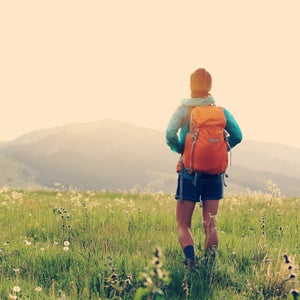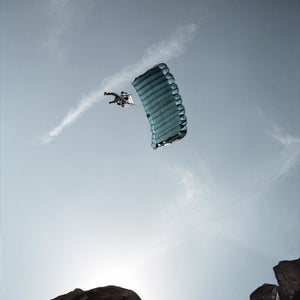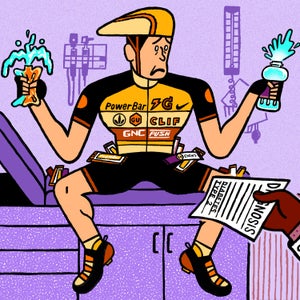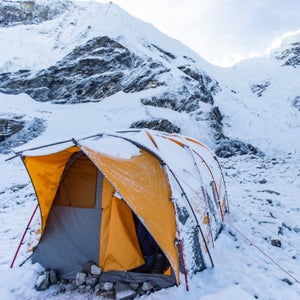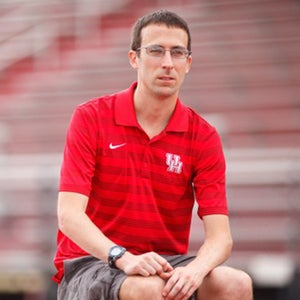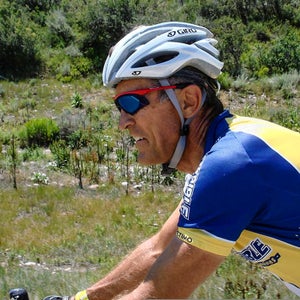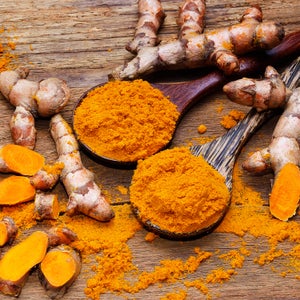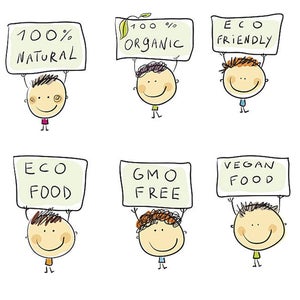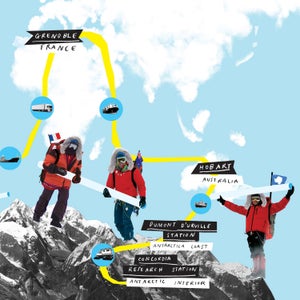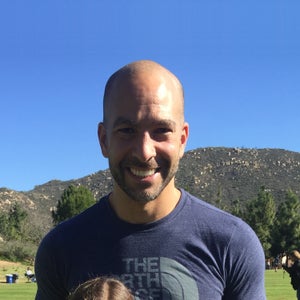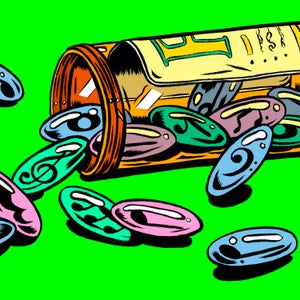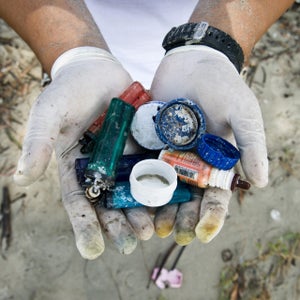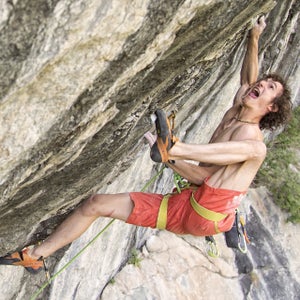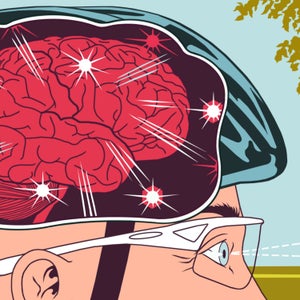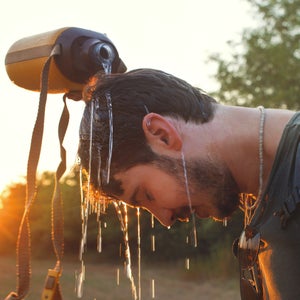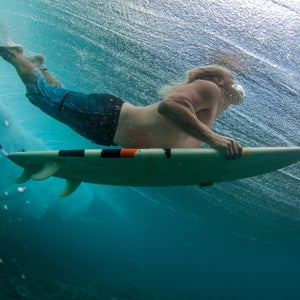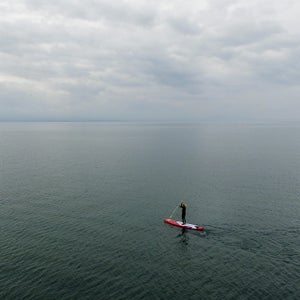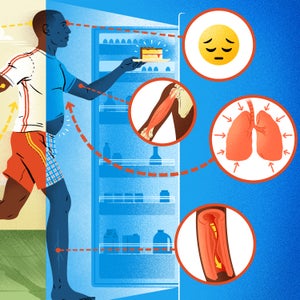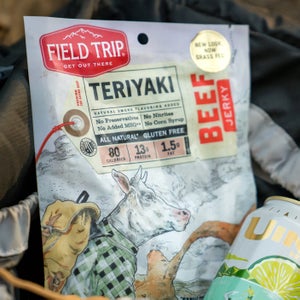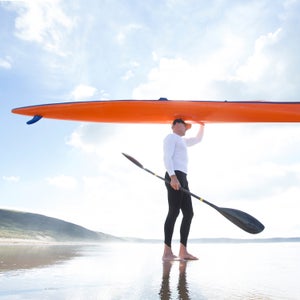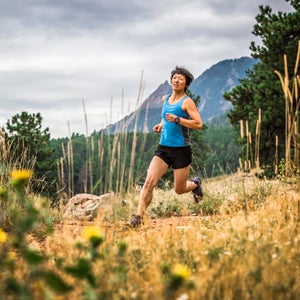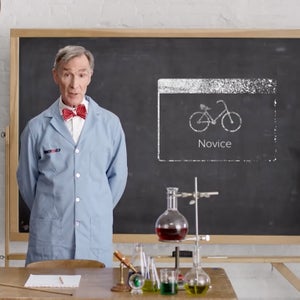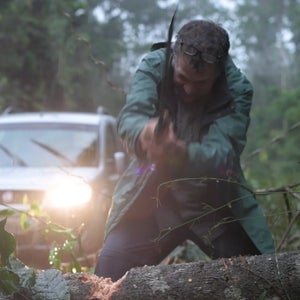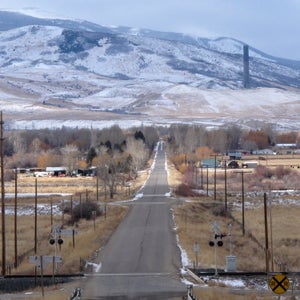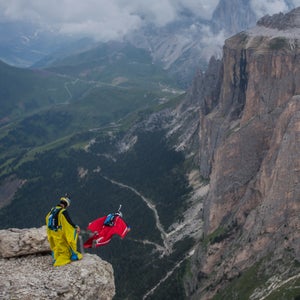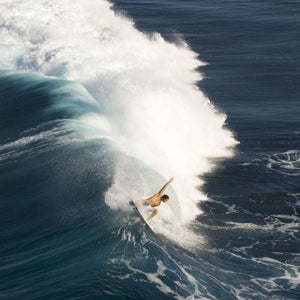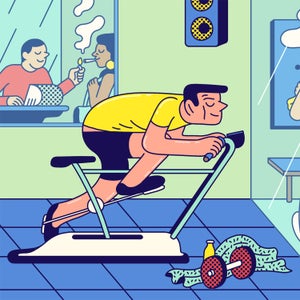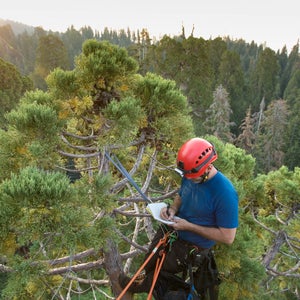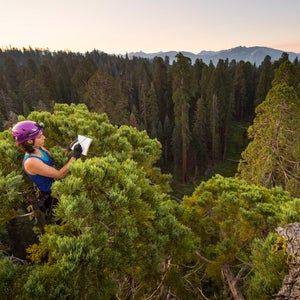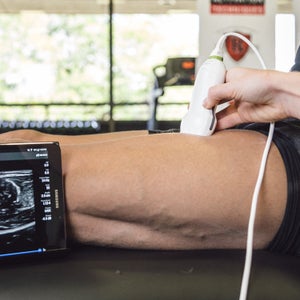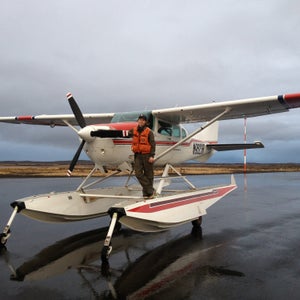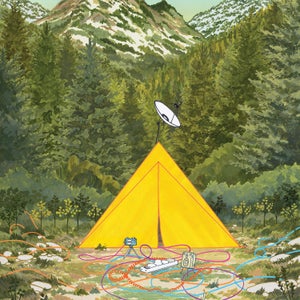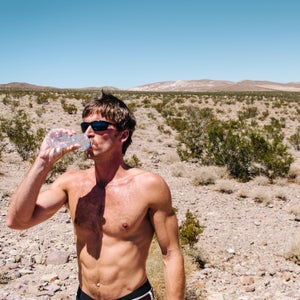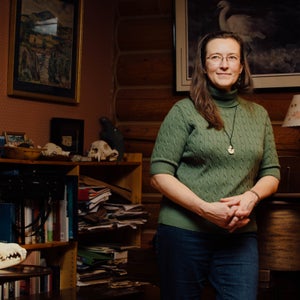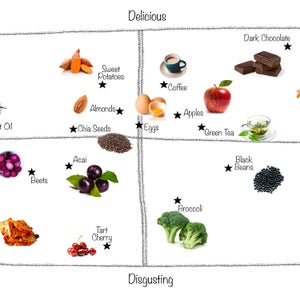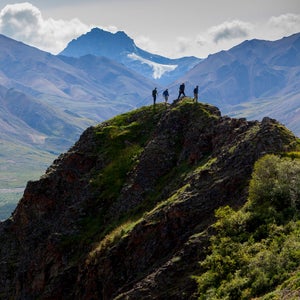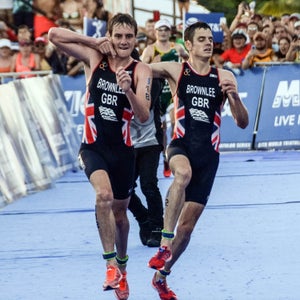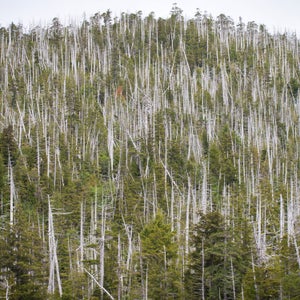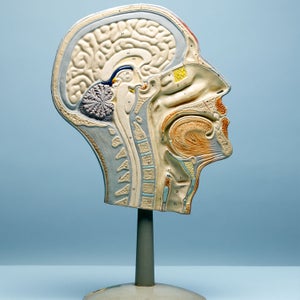Science
ArchiveSure, it's fun and relaxing—but it can also be a key part of a fitness routine
Music of the Spheres from Emic Films is a story about Wanda Diaz-Merced who is a blind astrophysicist from Puerto Rico.
What if you could alter your DNA profile, erase your risk for cancer, or just brew glowing beer? Whether that makes you giddy or terrified, that’s the dream of biohacker Josiah Zayner.
MIT research scientist Hugh Herr lost both legs below the knee after a 1982 winter climbing ordeal. In less than a year, he hacked his prosthetics to allow him to climb again, and he went on to become one of the world’s leading innovators in the field. Author Todd Balf, who lost partial use of his legs after a spinal-cord injury, gets a front-row seat as Herr and his MIT colleagues plot their next big act—new science and technology to end a slate of disabling conditions.
Ayana Elizabeth Johnson is creating a dream team to save our oceans
In the end, what it comes down to is this: Choosing to have wonder in your life, or not
Making it through a catastrophic event is just the first step. Presenting five true case studies in survival.
There's a lot of overlap between athletics and work, and the world's best apply the same principles to, say, training for a marathon as they do to building a business
Some explored the unknown, some made scientific breakthroughs, some are working to save the world. All are pioneers whose names should be more well-recognized.
The counterintuitive theory has pervaded books, studies, and Reddit threads and is something of a rally cry for LCHF converts. But while there may be some benefit to monitoring insulin levels, there's no need to cut out all carbs quite yet.
These people are turning disheartening data into amazing paintings, sculptures, and illustrations
In other words, how to not lose your mind to boredom, according to polar explorer Eric Larsen
You already follow the big names in the running community. Here's who they follow for news and advice.
We reached out to a few experts to see who they rely on via Twitter for trusted endurance tips
The science on how, or even if, these powders, capsules, and goos really help remains inconclusive. But many athletes believe the placebo effect alone may be enough to nudge them to victory.
Most brewers use only a handful of commercial yeast strains. What a waste.
What's old is new again. These eight straightforward principles will help you perform your best, no newfangled hacks required.
What was once spontaneous consumption has turned into a science of its own
Thanks to a shrewd food marketing industry and slick packaging schemes, we're overpaying for products that make major health claims with little real nutritional payoff
In today's quick-fix culture, it's more important than ever to remember that a few simple lifestyle changes can transform your overall health
A team of scientists are drilling into some of the world’s highest glaciers to learn about our planet’s past before the ice disappears forever
This sleep and health expert gives us his tips for how to ensure a restful night
The hardest part about your athletic pursuits may be building a long-term relationship with them
Scientists are discovering that certain playlists can boost brain activity and treat anxiety and depression
For the first time, a new study from the Ocean Cleanup quantifies how much plastic the world’s rivers are pumping into the sea
Yelling at the right moment has been linked to boosts in power and pain tolerance
The best performers in the world share a few key habits, and a new book helps you implement them
Exercise is as good for your brain as it is for your body, and researchers are just beginning to discover why
There's a flipside to dehydration that kills athletes and otherwise healthy people every year. And it's on the rise.
Every world-class performer—from athletes to chess players to musicians—follows these rules to keep improving at their disciplines
Sitting can be lethal, right? We asked the experts how to stay healthy while doing the one thing that, for the most of us, takes up the majority of the day.
After most MCL and ACL surgeries, doctors focus on treating and rehabbing the soft-tissue, while almost completely ignoring motor patterns and biomechanics
An entire industry is trying to curb our boredom while running. But if you can harness that feeling of restlessness, you may find yourself stronger and faster than ever.
Some athletes and trainers claim the structural protein helps stave off injuries like ACL tears. Don't listen to them.
Americans spend $11 billion a year in pursuit of the blissful happy-ever-after. But what do we really accomplish? To find out, Peter Andrey Smith embedded with the utopia seekers for a weekend in Miami at the first-ever World Happiness Summit.
The good news? They're all pretty simple to reverse—or prevent entirely.
A new book by two philosophy scholars imagines conversations with skeptics and deniers. Here are four lessons we learned from it.
This salty snack has taken center stage as a healthy, protein-laden endurance fuel
Turns out extending your lifespan is pretty damn easy. Just follow these definitive, scientific, time-tested methods.
Self-talk—repeating a phrase in your head—is a practical, proven strategy to push your limits
Bill Nye The Science Guy has teamed up with the team over at Diamondback to bring you the Let's Ride series explaining the fundamentals of biking.
Some days it's a paradise and others it's a jungle of hell. Yet for Dr. Scott Saleska and his students, that's just the reality of conducting science in the rainforest.
Wandering the Sonoran Desert in search of the chiltepin—the ancestor to domesticated chile peppers—with MacArthur genius Gary Paul Nabhan
For almost 40 years, Don MacGorman has launched truck-sized data balloons into storms while enduring drenching rain and potentially lethal hail. For the National Severe Storms Laboratory physicist who literally wrote the book on lightning, it's all just another day's work.
A former EPA administrator breaks down what’s at stake with the president’s proposed 31-percent cut to the agency’s budget
How to put in the work now to ensure that you will go for it later
Over the past six years, there have been 20 shark attacks around Reunion Island. The deaths have inspired some surfers—most famously and recently Kelly Slater—to advocate for a cull. Susan Casey argues why that's a terrible, immoral, and totally ineffective way to deal with the problem.
This May, the world's first cannabis-infused gym will open in San Francisco, where members will be encouraged to integrate the plant into their pre- and post-workout regimen
In her new book, the writer explains why getting outside cures so many of our problems
When John Muir sauntered through the condensed grove of what is now known as Sequoia National Park, he would have never envisioned the devastation that has occurred since 2011.
For Wendy Baxter, being a field researcher of giant Sequoia trees is the ultimate balance between athletic ability and scientific exploration.
On Kauai, residents worry less about whether genetically-modified food is safe to eat and more about what the pesticides used to test them are doing to their bodies. In an excerpt from his new book, 'Food Fight,' the author hits the ground to find out just what's happening.
Think of MuscleSound as a fuel gauge for your body that helps optimize your diet and training plan
Heather Wilson monitors migratory bird populations for the U.S. Fish and Wildlife Service from the captain seat of her amphibious Cessna 206
Most of us hit the outdoors seeking calm and quiet, but Chuck Thompson prefers to blast a little 38 Special by his campfires. Still, even a rustic headbanger like him has to wonder if the coming age of total connectivity in otherwise wild places is good for bees, beasts, and man.
Give your liver a break and you may gain a performance advantage, too
The widely used drug was added to the WADA list of banned substances on January 1, 2016 because of “evidence of its use by athletes with the intention of enhancing performance.”
When a creature mysteriously turns up dead in Alaska—be it a sea otter, polar bear, or humpback whale—veterinary pathologist Kathy Burek gets the call. Her necropsies reveal cause of death and causes for concern as climate change frees up new pathogens and other dangers in a vast, thawing north.
Throughout winter, regional avalanche forecasters rank the danger level in the backcountry, but a new study found they can sometimes disagree dramatically on snowpack conditions
Trained collectors are trekking into remote parts of the Southwest in hopes of discovering hardy new hops that can withstand warming temperatures
The pioneering astronaut was the first American to orbit earth. He died Thursday.
Ten ancient tools that gave rise to the equipment we still use today
A growing body of research says that giving thanks is beneficial for health and performance
Tracking HRV has emerged as one of the best ways to quantify recovery. But it’s also one of the most misunderstood and misused fitness tools around.
But good luck getting a dose
Say you see an article about how chocolate can prevent aging. You want to figure out what's actually going on, so you pull up the original study. Here's how you properly read it.
In 'The Unnatural World,' journalist David Biello argues that while humans have gotten Earth into a mess, we also have the power to fix it
American tourist Noel Santillan became an unlikely folk hero in Iceland after he entered a typo into his GPS and drove hundreds of miles out of his way. How can anyone wander so far off the mark? A growing body of research suggests that our reliance on navigational technology might be altering our brains in ways we’re only beginning to understand.
Some athletes swear by a once-a-week indulgence. Are they right?
It seems like everything in the grocery store is labeled "super." We dove into which foods are actually proven, by science, to be good for you and which ones are all hype.
Studies have shown that being outside has positive psychological and physiological benefits. Can the nature cure compete with Xanax?
Deaths, injuries, and helicopter rescues are a regular occurrence on Longs Peak, but that doesn’t stop people from trying to climb it
Everything from airplanes to your cell phone leaves audible marks on plants and wildlife. So sound specialists in parks around the country are working on setting a baseline for how noisy we're allowed to be.
Last week, at the International Triathlon Union’s Grand Final, Jonny Brownlee nearly lost consciousness a quarter-mile from the finish line. This is the most recent example of a trend that seems to plague the sport.
LVL, from BSX Technologies, is a wearable for hydration tracking. It'll tell you how much to drink, and when.
Why environmental scientists are transforming big data into music
New research shows that perceptions of fatigue and pain stop us from hitting our physical limits long before our bodies do. Can athletes train their brains to reach unheard-of levels of peak performance?
Don’t let the Theranos saga fool you: we’ve entered a new era of self-quantification, in which on-demand blood testing is sold as the easy way to fine-tune your training and nutrition. Can an algorithm really replace your coach?
Your mind is also key to recovery
